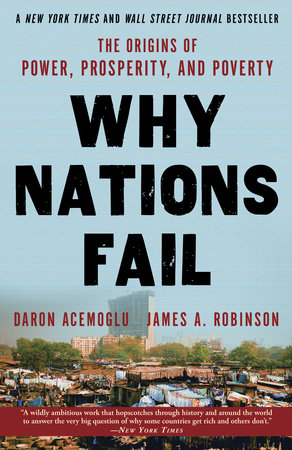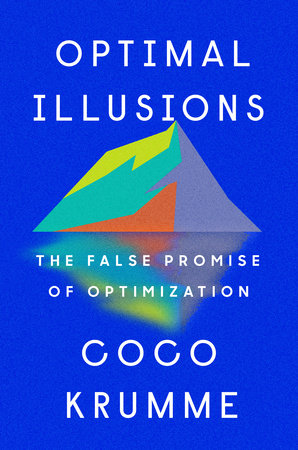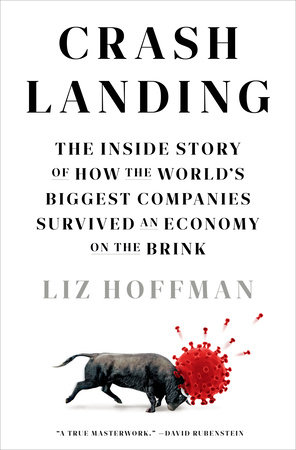Quick Summary
One Sentence Summary
“Why Nations Fail” by Daron Acemoglu and James A. Robinson explores the deep-rooted political and economic factors that determine the prosperity or poverty of nations.
Big Idea
The book argues that the key to a nation’s success lies not in geography or culture, but in its institutions – inclusive ones lead to prosperity, while extractive ones lead to failure.
Five Key Ideas
- Inclusive vs. Extractive Institutions: The authors distinguish between inclusive institutions that empower a broad swath of the population and extractive institutions that concentrate power and wealth in the hands of a few.
- History’s Role: Historical events shape institutional trajectories, creating a pattern of success or failure that can endure for centuries.
- The Role of Power and Politics: Political decisions and power struggles are central in shaping institutions.
- Economic Growth and Inequality: Inclusive institutions foster economic growth and equality, while extractive institutions hinder development and exacerbate inequality.
- Global Patterns: Examples from history and different parts of the world illustrate the universal applicability of the book’s thesis.
Actionable Advice
To promote prosperity, focus on creating and strengthening inclusive institutions that provide political and economic opportunities for the majority, not just the elite.
About the Author
Daron Acemoglu is an economist at MIT, and James A. Robinson is a political scientist and economist. Their combined expertise offers a multidisciplinary approach to understanding global development.
Read Next
For further exploration of similar themes, consider:
- “The Bottom Billion” by Paul Collier, examining why some countries struggle to escape poverty.
- “Guns, Germs, and Steel” by Jared Diamond, discussing the influence of geography and environment on human societies.
- “Capital in the Twenty-First Century” by Thomas Piketty, delving into economic inequality and its historical context.
In Depth
Inclusive vs. Extractive Institutions
In “Why Nations Fail,” the distinction between inclusive and extractive institutions forms the backbone of the argument. Inclusive institutions are those that spread power and prosperity broadly. They ensure that a large portion of society has access to economic opportunities and political decision-making. These institutions foster innovation, education, and competition, driving the nation towards growth and prosperity.
Extractive institutions, on the contrary, concentrate power and wealth in the hands of a few. They stifle growth by creating an environment where the ruling elite exploits the rest of the population. These institutions are often characterized by monopolies, lack of property rights, and exclusion from political processes for the majority.
A detailed example from the book is the contrasting development paths of North and South Korea. After the Korean War, both nations started from similar economic conditions. However, their trajectories diverged sharply due to the differences in their institutions. South Korea established more inclusive institutions, promoting industrialization, education, and a more democratic political system. This led to remarkable economic growth and transformation into a high-income country.
North Korea, in stark contrast, adopted highly extractive institutions. The regime centralized power, suppressed political opposition, and controlled economic activities. This resulted in a stagnant economy and widespread poverty. The authors use this example to illustrate how different institutional choices can lead to dramatically different outcomes for countries with similar starting points.
A quote from the book that encapsulates this idea is:
“Nations fail when they have extractive economic institutions, supported by extractive political institutions that impede and even block economic growth.”
This quote succinctly sums up the core argument of the book, highlighting the interdependence of political and economic institutions in shaping a nation’s destiny. It emphasizes that for a nation to succeed, it must create a system where economic and political power is not hoarded by a few, but is instead accessible to the majority.
The authors also make a compelling case that the transition from extractive to inclusive institutions is neither automatic nor easy. It often requires significant political struggles and confrontations. Those in power, benefiting from extractive institutions, resist changes that would dilute their authority and wealth. This struggle for power and reform is a recurring theme in the historical examples the authors provide.
In summary, the contrast between inclusive and extractive institutions and their impact on a nation’s success or failure is a central theme in “Why Nations Fail.” By drawing on historical and contemporary examples, Acemoglu and Robinson vividly illustrate how the nature of a nation’s institutions can either pave the way for prosperity or lead it down the path of persistent poverty and failure.
History’s Role
The second key idea in “Why Nations Fail” is the pivotal role of history in shaping a nation’s institutions. Acemoglu and Robinson argue that historical events set nations on trajectories that can last for centuries. These paths, once established, become difficult to alter.
A striking example from the book is the comparison between the cities of Nogales, Arizona, and Nogales, Sonora. Despite being geographically close, they exhibit stark differences in wealth and living standards. The authors attribute this to the different colonial legacies and institutional paths each side followed.
In the quote:
“In many cases, once society gets organized in a certain way, this tends to persist.”
the authors emphasize the inertia in institutional frameworks. The initial conditions, often set by historical events, tend to self-perpetuate. They highlight how the colonial experience led to the establishment of extractive institutions in many parts of the world. These institutions, designed to extract wealth for the colonizers, often persisted even after independence, hindering economic development.
Another poignant example is the divergence of development paths in the Americas. The authors explain how the differing geographies of North and South America influenced European colonization patterns. In North America, the relative absence of wealth to extract and the prevalence of diseases led to the establishment of colonies with inclusive institutions, like property rights and political representation. In contrast, the wealth in South America, such as gold and silver, led to extractive institutions designed to control and exploit this wealth.
The impact of these historical events is profound. They set in motion institutional paths that have had lasting impacts on the economic and political development of these regions.
This idea of historical path dependence challenges the notion that nations can easily change course. It shows that the roots of today’s economic and political systems often lie deep in history. The choices made by colonial powers, the outcomes of wars, and the resolutions of political conflicts have long-lasting impacts.
In essence, understanding the role of history is crucial in understanding why nations have evolved differently. It provides a context for the persistence of poverty in some regions and the prosperity in others. This historical perspective underscores the complexity of development and the challenges in shifting from extractive to inclusive institutions.
The Role of Power and Politics
In “Why Nations Fail,” Acemoglu and Robinson delve into the critical influence of power and politics in shaping a nation’s institutions. They argue that political decisions and power struggles are at the heart of whether a nation adopts inclusive or extractive institutions.
A vivid example from the book is the case of the United Kingdom during the Industrial Revolution. The authors describe how political changes laid the groundwork for economic transformation. The Glorious Revolution of 1688 is highlighted as a turning point. It shifted power from the monarchy to a broader coalition, including the emerging merchant and industrial classes. This power shift led to more inclusive political and economic institutions, paving the way for the Industrial Revolution.
The authors assert:
“Political institutions determine who has power in society and to what ends that power can be used.”
This quote encapsulates the essence of this key idea: the distribution and use of political power are fundamental in shaping the economic and social landscape of a nation. Political institutions that distribute power broadly and ensure a level of accountability lead to inclusive economic institutions. Conversely, when political power is concentrated and unaccountable, it results in extractive economic institutions.
Another telling example is the contrast between the Spanish and British empires. The Spanish Empire, with its centralized and unaccountable power structure, established extractive institutions in its colonies, focusing on wealth extraction and maintaining control. The British Empire, particularly post-Glorious Revolution, while not entirely devoid of extractive practices, was more likely to establish institutions that, in some cases, allowed for greater local autonomy and economic development.
The role of power and politics also explains why institutional change is often difficult and contentious. Those in power have incentives to maintain the status quo that benefits them. Changing from extractive to inclusive institutions typically involves significant political upheaval, as it threatens the interests of the powerful elites.
In summary, the role of power and politics is a crucial factor in the book’s thesis. It not only shapes the nature of institutions but also determines the trajectory of a nation’s economic and political development. This key idea underscores the importance of power dynamics in understanding why some nations fail and others succeed.
Economic Growth and Inequality
“Economic Growth and Inequality” is a central theme in “Why Nations Fail.” Acemoglu and Robinson argue that the type of institutions a country has directly impacts its economic growth and the distribution of wealth. Inclusive institutions foster economic growth and equality, while extractive institutions hinder development and exacerbate inequality.
One compelling example in the book is the contrasting economic trajectories of the United States and Latin American countries. The U.S., with its inclusive institutions, fostered innovation, competition, and industrialization, leading to sustained economic growth. In contrast, many Latin American countries, with their history of extractive institutions, struggled with inequality and economic stagnation.
The authors state:
“Inclusive economic institutions foster economic activity, productivity growth, and economic prosperity.”
This quote highlights the positive cycle of inclusive institutions. They create an environment where individuals have the freedom to innovate, invest, and participate in economic activities. This leads to overall economic growth and a more equitable distribution of wealth.
Another example is Botswana, often cited as a success story in Africa. After gaining independence, Botswana established inclusive economic and political institutions. It avoided the resource curse that plagued many African nations. Instead of falling into the trap of extractive institutions, Botswana managed its diamond wealth wisely, investing in education, healthcare, and infrastructure. This led to remarkable economic growth and improved living standards.
Conversely, extractive institutions create a negative cycle. They concentrate wealth and opportunities in the hands of a few, leaving the majority disenfranchised. This not only leads to economic stagnation but also exacerbates inequality. The authors illustrate this with examples from history, where empires and nations crumbled under the weight of their extractive practices.
This key idea underscores the profound impact of institutions on a nation’s economic health. It links the type of institutions directly to economic outcomes, showing how inclusive institutions are not just a moral choice but a practical path to prosperity. It also highlights that tackling inequality is not just about redistribution but about transforming the fundamental structures that govern economic activities.
In essence, “Economic Growth and Inequality” is a vital piece in understanding why nations fail or succeed. It connects the dots between the nature of institutions, economic performance, and the distribution of wealth, providing a comprehensive framework for examining national development trajectories.
Global Patterns
In “Why Nations Fail,” Acemoglu and Robinson extend their analysis to identify global patterns that illustrate their central thesis. They assert that the principles of inclusive and extractive institutions apply universally, influencing the fate of nations across different continents and historical periods.
One detailed example they provide is the comparison between the cities of Venice in Italy and Istanbul in Turkey. Venice, during the early Renaissance, was a hub of trade and innovation. Its inclusive institutions allowed for a flourishing economy and vibrant culture. However, as the ruling elite felt threatened by the emerging new merchants, they began to establish extractive institutions to maintain their power. This change led to the decline of Venice as a major economic power.
Istanbul, on the other hand, under the Ottoman Empire, was characterized by highly extractive institutions. The Sultan and the ruling class exerted tight control over economic activities, stifling innovation and entrepreneurship. This extractive setup prevented Istanbul from experiencing the kind of economic and cultural renaissance that transformed many European cities.
The authors summarize this idea:
“The same pattern of institutional failure and success appears again and again.”
This quote captures the recurring theme of their argument: irrespective of geographical location or cultural background, the nature of a nation’s institutions determines its success or failure. The pattern of nations thriving under inclusive institutions and declining under extractive ones is a global phenomenon, observed in various contexts.
Another example illustrating global patterns is the differing colonial approaches of European powers. In places like the United States or Australia, where European settlers made their home, they established inclusive institutions similar to those in their home countries. In contrast, in regions like Africa or Latin America, where the focus was on resource extraction, they established extractive institutions that prioritized wealth extraction over the well-being of the local population.
These examples underscore the universality of the book’s core argument. Whether in ancient empires, colonial contexts, or modern nation-states, the type of institutions a society adopts has a profound impact on its trajectory. The patterns observed are not confined to a specific era or region; they are global and persistent.
In essence, “Global Patterns” serves as a compelling conclusion to the book’s argument. It shows that the principles of inclusive and extractive institutions are not theoretical constructs but real-world phenomena with consistent, observable impacts. This key idea reinforces the book’s central message and highlights the universal applicability of its thesis to understanding why nations fail or succeed.
Actionable Advice
-
Promote Inclusive Institutions: Advocate for political and economic systems that distribute power and resources more evenly. Support policies that ensure fair competition, protect property rights, and encourage innovation.
-
Foster Transparency and Accountability: Push for transparency in government and corporate practices. Demand accountability from leaders and institutions to prevent corruption and abuse of power.
-
Invest in Education and Infrastructure: Champion investments in education and infrastructure. These are foundations for inclusive economic growth, providing opportunities for all.
-
Encourage Entrepreneurship and Innovation: Support policies that make it easier to start and grow businesses. Innovation drives economic growth and can break cycles of extractive practices.
-
Challenge Extractive Practices: Stand against practices and policies that concentrate wealth and power. This includes monopolies, restrictive trade practices, and political corruption.
-
Support Rule of Law: Advocate for strong legal systems that enforce contracts, protect rights, and ensure justice. Rule of law is crucial for inclusive institutions.
-
Engage in Political Processes: Participate in democratic processes. Vote, advocate, and engage in dialogues to push for inclusive, fair institutions.
-
Learn from History: Study historical patterns of success and failure in different nations. Use these lessons to inform current practices and policies.
About the Author
Daron Acemoglu is a renowned Turkish-American economist, born on September 3, 1967, in Istanbul, Turkey. He is currently a professor at the Massachusetts Institute of Technology (MIT) and is widely recognized for his work on political economy, economic development, and labor economics. Acemoglu received his PhD from the London School of Economics in 1992. His academic brilliance is evident in his numerous awards, including the prestigious John Bates Clark Medal in 2005. He co-authored “Why Nations Fail” with political scientist James A. Robinson. Acemoglu’s research often focuses on understanding the role of institutions in economic development and the factors that lead to the rise and fall of nations. He believes in the power of inclusive institutions in promoting economic prosperity and argues that political and economic inclusivity are crucial for sustainable growth. His extensive body of work, characterized by depth and innovation, makes him one of the most influential economists of his generation.
Read These Next
You might like these similar books
- “The Origins of Political Order” by Francis Fukuyama
- “The Narrow Corridor: States, Societies, and the Fate of Liberty” by Daron Acemoglu and James A. Robinson
- “Guns, Germs, and Steel: The Fates of Human Societies” by Jared Diamond
- “The Wealth and Poverty of Nations: Why Some Are So Rich and Some So Poor” by David S. Landes
- “Collapse: How Societies Choose to Fail or Succeed” by Jared Diamond
FAQ
Q: What is the main argument of “Why Nations Fail”?
A: The book argues that the success or failure of nations is primarily determined by their political and economic institutions. Inclusive institutions lead to prosperity, while extractive institutions lead to failure.
Q: Who wrote “Why Nations Fail”?
A: The book was written by Daron Acemoglu, an economist, and James A. Robinson, a political scientist.
Q: Is “Why Nations Fail” suitable for someone without an economics background?
A: Yes, the book is written in an accessible way, making complex concepts understandable for readers without an economics background.
Q: Does “Why Nations Fail” provide real-world examples?
A: Yes, the book is filled with detailed historical and contemporary examples from different countries to illustrate its points.
Q: Can “Why Nations Fail” help understand current global events?
A: Absolutely. The book provides a framework for analyzing how institutions shape economic and political outcomes, which can be applied to current events.
Q: How long is “Why Nations Fail”?
A: The book is around 529 pages, providing an in-depth exploration of its themes.







